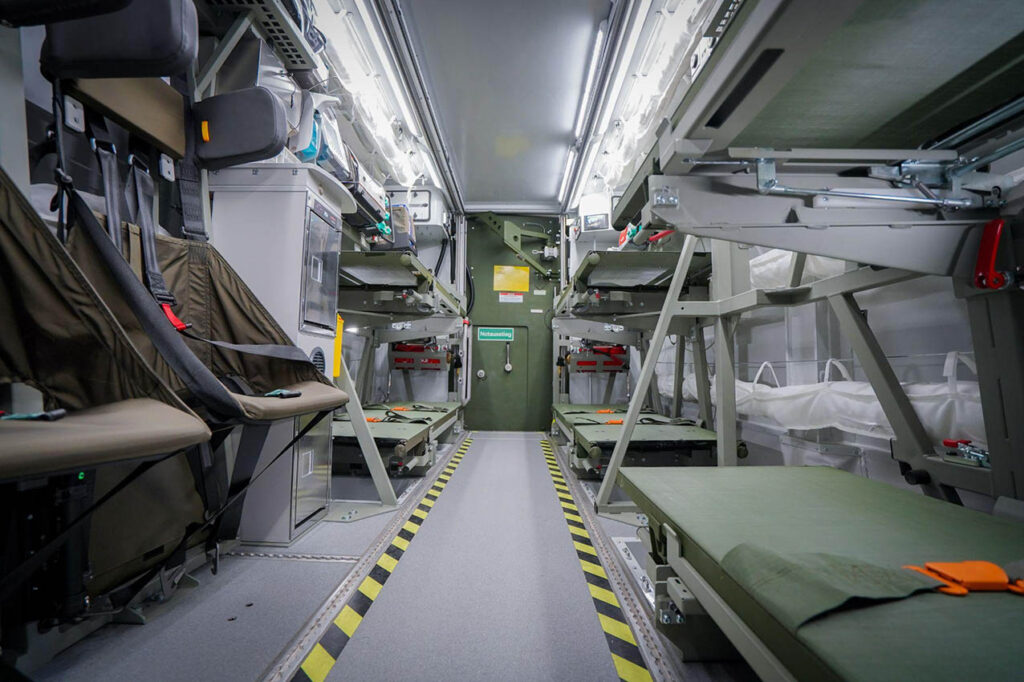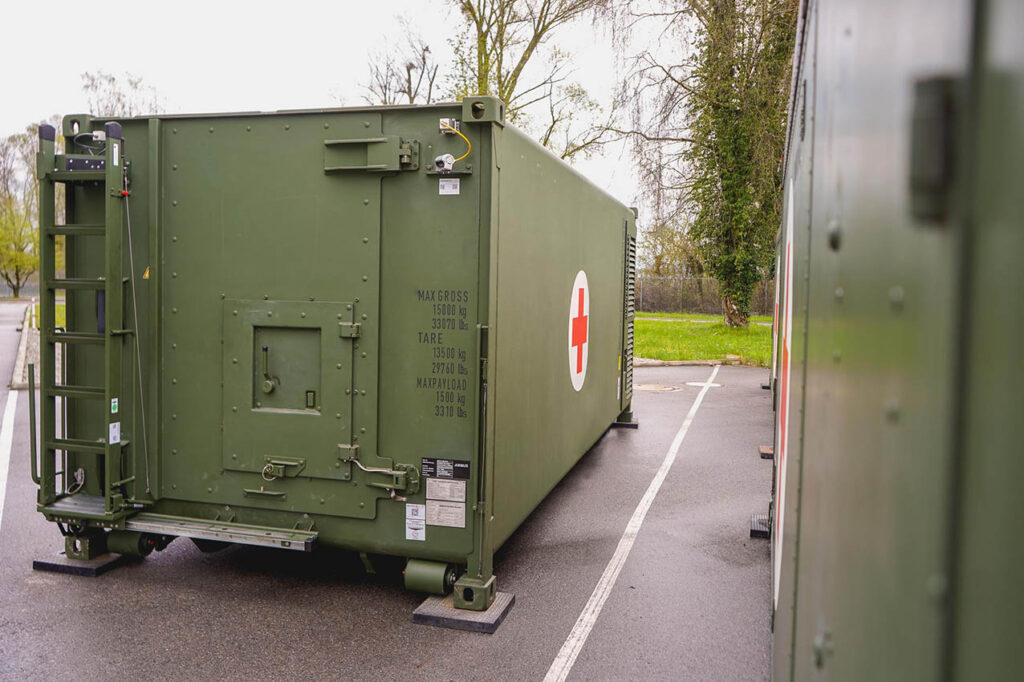Transport, treat, save lives: Airbus delivers first protected-wounded transport container to German Armed Forces
Friedrichshafen, 2 May. Airbus Defence and Space has now handed over the first of 13 protected-wounded transport containers (GVTC) to the German Armed Forces. From now on, their medical personnel will use them to save lives: In the containers, they can safely transport the sick, injured and wounded to hospitals or field hospitals – and even provide medical care while doing so.

“Our protected-wounded transport containers improve the Bundeswehr’s rescue chain and ability to recover, transport and treat the wounded in crisis areas,” said Harald Mannheim, Managing Director of Airbus Defence and Space GmbH. “In this respect, the GVTC is further proof of how we and our state-of-the-art technologies help all those who help others.”
The first GVTC, delivered on 20 April, will be used as a so-called ‘proof-of-concept’ vehicle. This means that the Bundeswehr will put the container through its paces and train and educate its medical personnel on it, after which, the GVTC will go into series production. The 12-series GVTCs are then scheduled to be handed over to the Bundeswehr from 2024 to 2026.

The GVTC: flexible, simple and safe
The GVTC, which Airbus Defence and Space developed with partner companies Drehtainer GmbH and Binz Automotive, is based on the international ISO standard 20-foot container. It is around 6 metres long and can be easily mounted on existing Bundeswehr trucks via an integrated hook roll-off system. Cranes or other special equipment are not required.
In the GVTC, two paramedics can treat up to eight patients and, for example, monitor their vital signs and oxygen saturation, perform a defibrillator operation or have patients ventilated via the integrated oxygen-generation system. The container also protects its occupants and the equipment on board from chemical warfare agents, shelling and heavy explosions. A power generation unit enables self-sufficient operation for hours, while the high-performance air-conditioning system allows the GVTC to be used in extreme climatic conditions.





